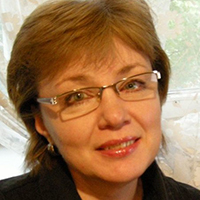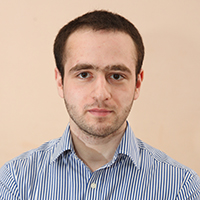‘Successful Admissions Is the Result of Daily Work over Several Years’

Academic Supervisors of HSE programmes have been awarded bonuses for activities contributing to the university’s development. Active attraction of international students to HSE has become one of the assessment criteria.
‘The increase in the number of international students is one of the key indicators that demonstrates how our university is visible and competitive in the global educational market. The university’s current strategic objectives are above all related to its positioning in the global academic market. In addition, attracting students from abroad represents not only the success of individual educational programmes, but also strengthens HSE's reputation as a whole,’ says HSE Vice-rector Sergey Roshchin. ‘The university administration believes it is important to recognize colleagues who helped to achieve this result.’
In 2018, more than 20 undergraduate programmes at HSE Moscow saw an increase in international admissions. For many of them, the increase was many-fold. For example, Business Administration programme grew from 8 to 27 students, and some programmes managed to increase admissions from scratch (for example, from 1 to 13 students in Political Science).
In the assessment of HSE master's programmes, enrolment of students in fee-paying places was taken into consideration in addition to international admissions. Taking into account these criteria, the work of approximately 30 Academic Supervisors was given high marks.
In total, compared to the last academic year, the number of international students among first-year students in fee-paying places at HSE increased by 80%. Academic Supervisors from several programmes spoke to the HSE News Service about how they managed to achieve these results.

Marina Dvoryashina,
Academic Supervisor of the Bachelor's programme in Business Administration
In my view, there are no secrets in such matters as attracting Russian or international students to the educational programme. This is the result of daily work for several years. Participation in educational fairs, off-site events under Rossotrudnichestvo, the launch of the business fundamentals track, HSE Olympiads, the autumn project school for school students and more all help to increase awareness and involvement of students, including international students.
When prospective students decide to participate in HSE admission competitions, they get their first experience interacting with our university — through emails, follow up, Skype interviews, etc. If we do things the right way – openly and with enthusiasm – this leads to a relationship with HSE that students want to continue. When students see that the best study at HSE (word of mouth works very well in this case), this attracts them.
It is also important to understand that good results cannot be obtained by one person; this is the result of joint work with the administration of the Faculty of Business and Management and International Student Office. The Academic Supervisor in this complex process is something like ‘the last mile’.

Ilya Lokshin, Academic Supervisor of the Bachelor's programme in Political Science
I would note several factors that can be divided into two groups – those that work at the level of HSE and those that work at the level of the educational programme. The first group includes HSE brand promotion abroad, active work of the International Admissions Office, and a flexible system of discounts.
As for the second group of factors, I would highlight the one related to the International Youth Olympiad. This may sound strange given that the Olympiad has almost nothing to do with fee-paying admissions — on contrary, it helps students enrol in state-funded places allocated within the quota (in addition to the Olympiad in Social Sciences, which gives students the opportunity to apply to different programmes in the Faculty of Social Sciences and other programmes, there is also the Olympiad in Modern Politics that is being implemented by our school). We have actively worked with the winners and runners up of these competitions: we emailed them, consulted with them, and reminded them about the submission of documents. As a result, these prospective students enrolled on almost all quota places. Accordingly, the fee-paying competition has shifted to those applicants with very high grades on entrance examinations. Given their high grades, these students received large discounts - up to 70% - which made fee-paying admissions quite acceptable.
In addition, in the last two years we have actively updated the content of the educational programme and at the same time have given it a partial rebranding: we tried to clearly define what we can offer to applicants and what our competitive advantages are. It is possible that this also had a positive effect.
Maxim Nikitin, Academic Supervisor of the Master's programme in Financial Economics
This year, 58 students from Russia, Italy, Armenia, Mongolia, Moldova, Uganda, Ghana, Ukraine, Uzbekistan, Tajikistan have enrolled in our programme. The share of international students was 25%. This was made possible due to the admissions of the double degree programme with the Italian university LUISS, the enrolment of Olympiad winners (‘I am Professional’ and ‘The Open Doors’), the development of the ICEF scholarship programme, as well as improvement of the prospective student support procedure covering every stage from application to the arrival at the place of study.
In addition to traditional ways of interacting with prospective students, such as fairs, presentations and presence on educational websites, ICEF takes part in specialized career events, organizes regular webinars, open lectures and meetings with programme graduates. Such meetings are important because many applicants pay attention to the recommendations of graduates or students.
We asked our students why they chose ICEF master's programme. One of the most frequent answers was that the programme has an optimal balance between applied and theoretical knowledge. They were also attracted by the opportunity to study during the second year at an international partner university.

